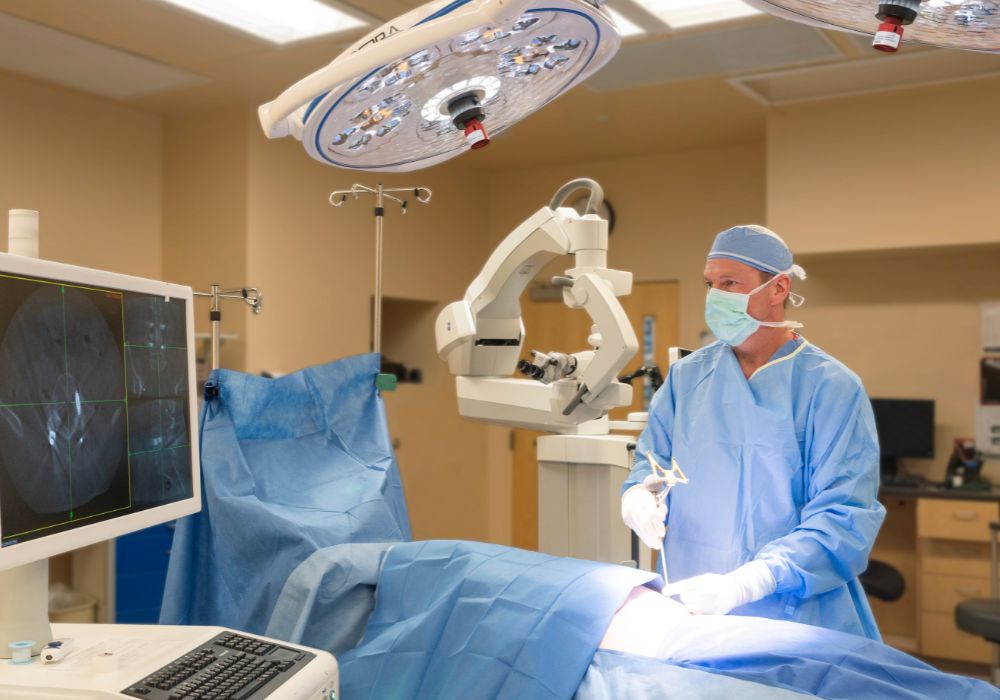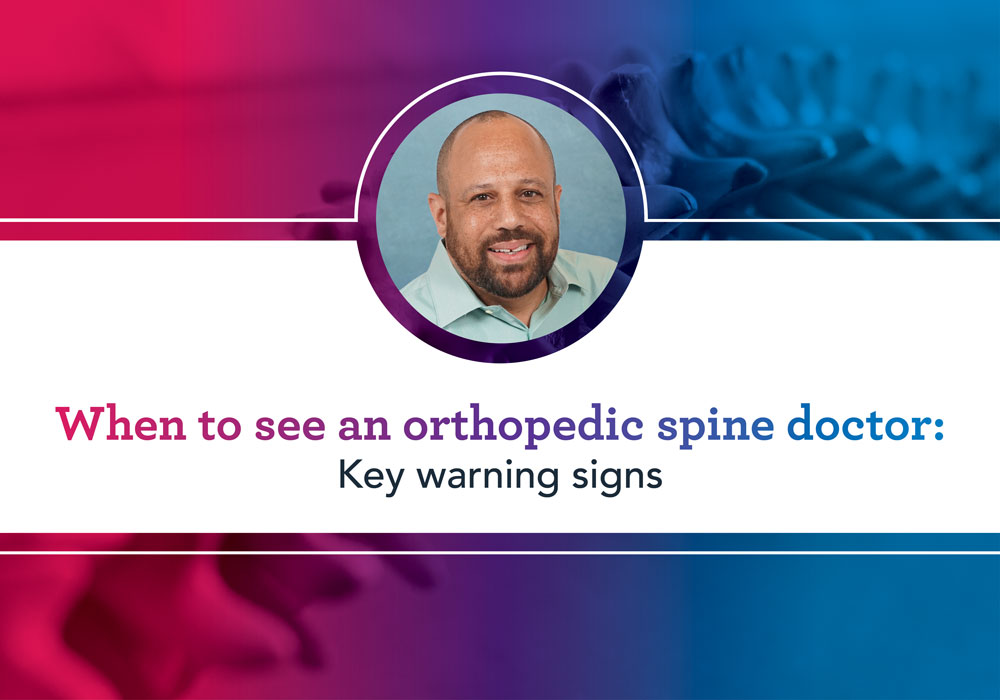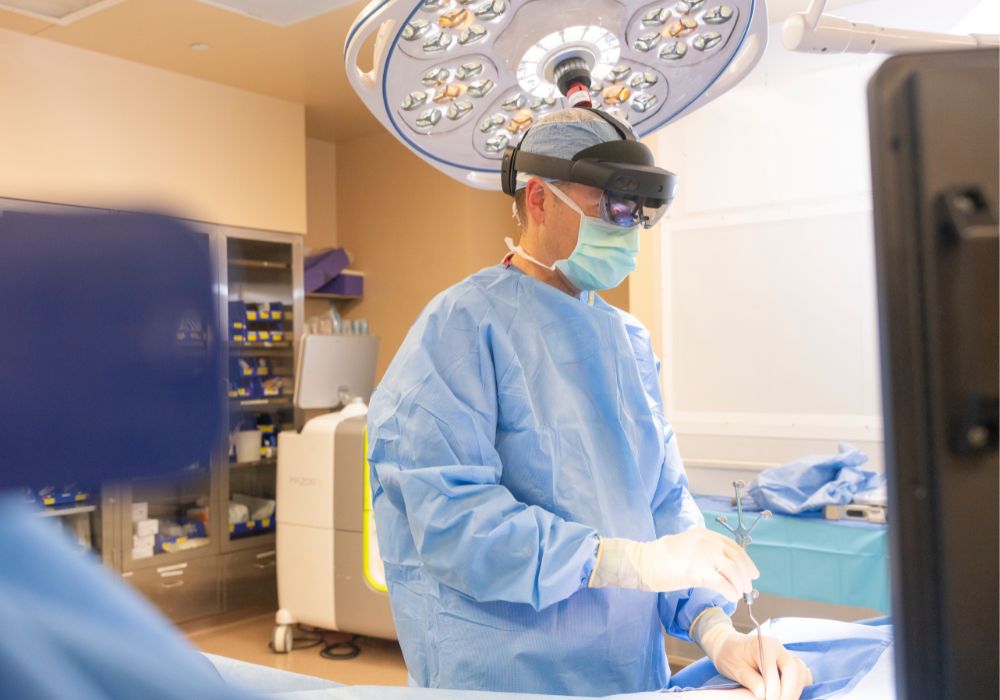Knowing if it’s the right time for back surgery is different for everyone.
- Have you done physical therapy? Check.
- Worked to strengthen your core and boost flexibility? Check.
- Tried massage to release tension and decompress your spine? Check.
- Tried bracing? Check.
- Reduced your strenous activity? Check.
- Used heat/ice? Check.
- Medications and injections? Check.
- Improved your diet? Check.
- Lost weight? Check.
- Stopped smoking? Check.
- Exercised regularly? Check.
- Tried strength training? Check.
- Have you give it time? Check.
When your chronic or recurrent back pain doesn’t improve despite noninvasive therapies and lifestyle changes, it’s time to think about exploring additional options, such as back surgery.
You don’t have to live with the back pain, no matter its cause. Some of the typical reasons people experience debilitating aches and pains in their back include:
- herniated disc
- pinched nerve
- scoliosis
- sciatica
- other conditions, injuries and disorders
There are options for relief. Keep on reading to learn more about how to know it is time to talk to a spine specialist about having back surgery.
Non-operative treatment for back pain
Typically, after determining what is causing your back pain, you won’t be rushed to have back surgery. Instead, your spine specialist will recommend conservative, or non-surgical, treatments for managing or eliminating your discomfort. The goal is to first try treatments to help your body heal naturally over time.
Take, for example, OrthoIndy’s non-operative pain management physicians.
Also know as physiatrists, this group of orthopedic providers works in collaboration with spine surgeons. In fact, it’s not uncommon for these experts in non-operative treatments to walk down the hall and knock of the doors of their colleagues who perform back surgery to discuss possible next steps for patients with the most challenging conditions to treat.
It’s all about exploring appropriate options to lessen suffering and improve the quality of life during each stage of your treatment.
Signs that it’s time to consider back surgery
You don’t need to live with significant chronic back pain that keeps you from doing what you love.
Please speak with your Orthopedic doctor about having surgery on your back if you suffer from any of these symptoms or conditions and can’t find relief:
- Muscle weakness
- Tingling and numbness in your arms
- Tingling and numbness in your legs
- Bladder and/or bowel incontinence
- Trouble walking
- Trouble using your hands
- Bone spurs on your spine
- Herniated disk that isn’t getting better
- Broken vertebrae
- Stenosis
Your first back surgery consultation
Should I be nervous? It’s a common question Orthopedic doctors hear when discussing back surgery with patients suffering from unrelenting back pain. Most of the time, when the topic comes up, the operative solution is a spinal fusion in which a spine surgeon uses rods and metal screws to stabilize a patient’s spine.
“If you’re not a little concerned, I would be worried,” says Dr. Kevin O’Neill, an OrthoIndy spine surgeon. “It is surgery after all. Though it can be scary, it helps to learn as much as possible about your operation before you have back surgery. Being informed can help diminish some of your pre-op anxiety. We will do everything in our power to address all of your concerns.”
In most cases, there is no need to rush into surgery.
There is a good chance your back will heal itself with a proper non-surgical plan that includes physical therapy. After that, if you are a good candidate for back surgery, your nonsurgical spine physician will discuss it with you and set up a consultation with a spine surgeon.
“During the first consultation we verify the diagnosis and explain the procedure,” explains Dr. O’Neill. “We take the time to walk the patient through the entire operation.”
“We try to meet and talk with everyone that is going to be involved, even the caregiver to make sure everyone is on the same page. Consequently, several people have to say yes before a complicated surgery moves forward.”
Back surgery patient success story
Maybe you’ve had spine surgery in the past and the results were less than expected. It is still worth talking to another provider. That was OrthoIndy patient Marlene Shafer’s situation.
For instance, her back was causing her so much disabling pain that she was unable to stand up straight. Marlene had a few back surgeries at another practice, but they brought no relief. She thought there were no other options for her and that the pain kept worsening. She ended believing it was just something she was going to have to live with.
This wasn’t true for Marlene, and it isn’t true for you. No one has to live with back pain. Learn more about how back surgery helped Marlene.
What you should know about back surgical emergencies
Surgical emergencies for back pain are extremely rare, but they do occur.
For this reason, if you are experiencing a loss in bowel and/or bladder control or developing progressive weakness in the legs, these symptoms constitute a medical emergency and require immediate back surgery.
Please make an appointment with a spine surgeon right away.
Surgical options for severe back pain
Spine surgery is never your only option for treating spine pain. As counterintuitive as it may seem, good spine surgeons will always suggest that you try less invasive alternatives before proposing having back surgery.
Moreover, OrthoIndy surgeons don’t recommend having surgery on your back unless the expected benefits outweigh the potential risks.
Set a time to talk with an expert to learn more or download our comprehensive reference guide for detailed information on the pros and cons of having back surgery to relieve pain.
What’s the difference between a neurosurgeon and an orthopedic surgeon?
When it comes to spine surgery, both neurosurgeons and orthopedic surgeons are equally qualified. In fact, they frequently work together to help back pain patients get better.
As for red flags, the best person to perform your back surgery won’t be intimidated if you want to get a second opinion, will use sophisticated technologies to ensure you receive precise surgical care, and will make sure you’ve fully explored all conservative, non-surgical treatment options first. In addition, they will be frank. Don’t expect an experienced spine specialist to make unrealistic promises about surgical outcomes that they can’t keep.
Is there an age limit for back surgery?
According to research presented in the Journal of Neurosurgery, spine surgeons can perform operations on older patients 85 years and older so long as there are no other pre-existing conditions or underlying factors that may cause potential complications.
What other information do you need to know before making a decision?
Having spine surgery is almost always an elective procedure, meaning that you—the patient—get to choose whether or not to have an operation. Seldom is back surgery absolutely required. Patients typically choose surgery when their pain becomes unbearable and other options for relief have been explored.
Your spine surgeon can help you make an informed decision.
Before your back operation is scheduled, take the time to get answers to all of your most pressing questions. Some things you should ask your spine surgeon in advance, include:
- I am worried about risks because I have a pre-existing condition (e.g., you are older, overweight, smoke, or have grade spondylolisthesis). How will this affect my surgical outcome?
- How long will the surgery take?
- Who else will assist you in my back surgery? How are robots used?
- What happens if my spine issue is different than you expected? How would that change my surgery?
- What will happen if my condition is not surgically addressed?
- Are you fellowship-trained in back surgery?
- How many surgeries have you performed like one I need? What is your success rate performing this type of spine surgery?
- How long should I expect to have to stay in the hospital?
- How much pain should I expect to have after back surgery?
- What is the typical timeline for full recovery?
- What medications will I need to take for pain management?
- What limitations should I expect to have right after surgery? What about after I’ve healed?
- How soon will I start physical therapy? What will that involve?
- When can I expect to be able to drive again?
- When should I be ready to go back to work?
- When is it safe to have sex again?
- Who should I call if I have questions after my surgery?
- When will I need to come back to see you? How many times?
Paying for back surgery
In addition to speaking with your surgeon before back surgery, you should also connect with a representative from your insurance provider to go over any questions you might have. They can help you figure out what costs they will manage and explain what isn’t covered by your insurance plan.
Schedule an appointment
Your well-being is important to us. Call us at 317.802.2883 to schedule a consultation with one of our orthopedic specialists or request an appointment online.
If your injury or condition is recent, you can walk right into one of our OrthoIndy Urgent Care locations for immediate care. For rehabilitation and physical therapy, no referral is needed to see one of our physical therapists.
You might also like:

Checklist on Prepping for Back Surgery
Having back surgery? Find out what you can do now to make your recovery go smoothly and learn other ways to prepare, including what to pack and bring along to the hospital.





